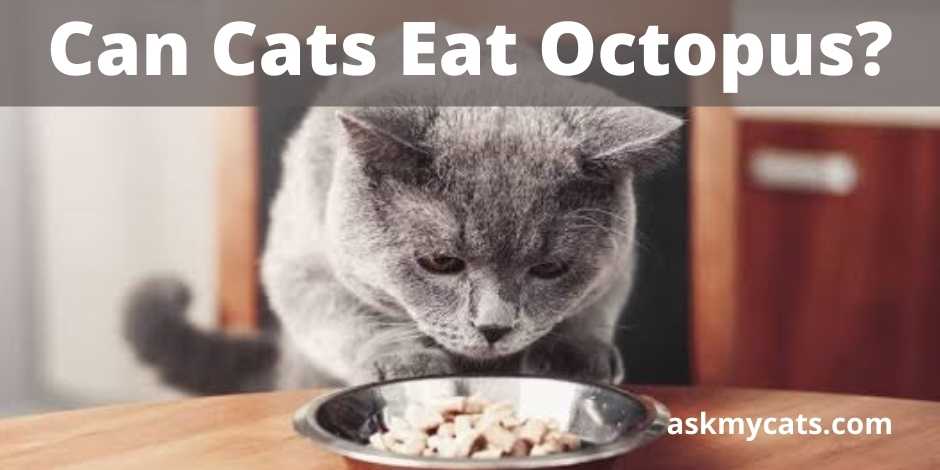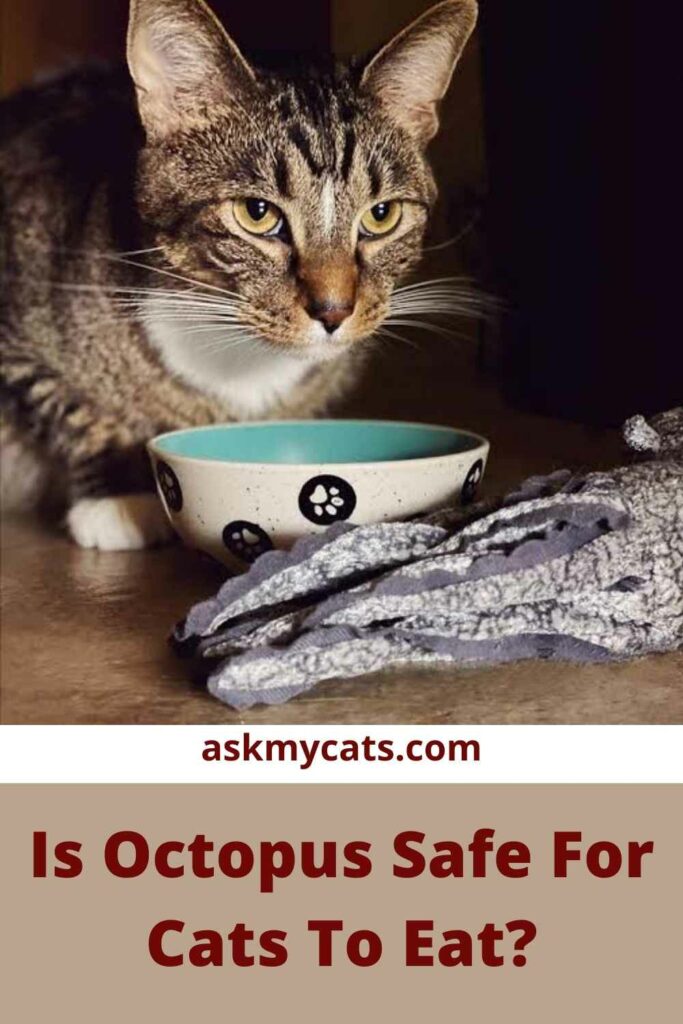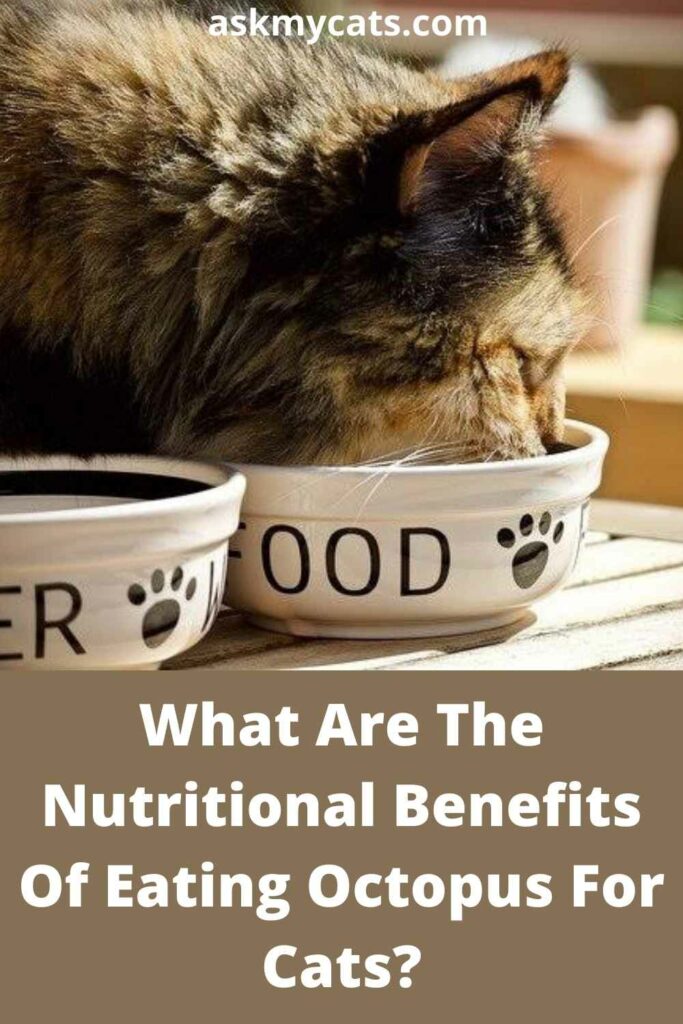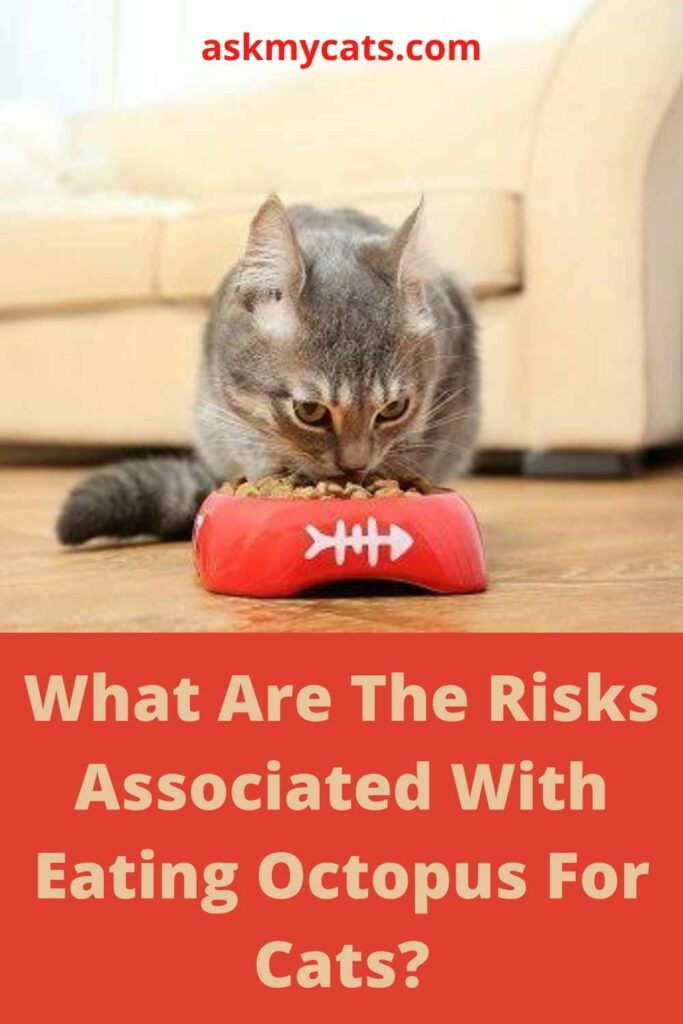If you love seafood, you may be wondering if your cat can have it too. Your little feline may want to take a bite off the octopus on your plate.
To answer your question, yes, cats can eat octopus. They should, however, only consume a tiny amount of cooked octopus as a rare treat. Furthermore, you must make certain that the octopus is fresh and that it has been carefully prepared to eliminate any dangerous germs or parasites.
While cooked octopus is typically safe for cats to eat, raw octopus can cause illness due to germs and parasites.
Although it’s rare that your cat would become ill as a result of eating raw octopus, you would not want take chances with their health as a pet parent. Instead, treat them to some fried octopus every now and again.
We’ll go over all you need to know about how safe and healthy octopus is for your cat to eat in this article. Keep reading!


Give Your Cat the Perfect Day
Get the Free Ebook!
Is Octopus Safe For Cats To Eat?

Yes, octopus is safe for cats to eat in small amounts as long as it is cooked. Cooked octopus can help your cat get the protein she needs. Raw octopus infected with vibrio bacterium, on the other hand, has been linked to a number of diseases.
Only those with weakened immune systems are susceptible to vibrio. The bacterium, which is most often connected with eating raw oysters, generally produces gastrointestinal problems, but in severe cases has resulted in limb loss and even death.
While vibrio isn’t known to damage cats, it’s best to be careful and offer your cat only cooked octopus.
Additionally, the metal cadmium may be found in high concentrations in octopus heads. Because cats are particularly susceptible to heavy metal toxicity, it’s better to keep the quantity of octopus you feed them to a minimum.
Can you share some of your octopus with your cat? Yes. Kittens may sometimes consume octopus as a snack, treat, or as a minor portion of their diet.
Proteins, lipids, carbs, and vitamins such as vitamin A, vitamin B6, B12, vitamin C, and vitamin C will be provided to your cat. Iron, magnesium, phosphorus, zinc, copper, and selenium are just a few of the minerals found in octopuses.
Can Kittens Eat Octopus?
No, kittens cannot eat octopuses. Kittens’ stomachs are considerably more delicate, therefore we advise against feeding them octopus, taking into mind all of the potential hazards we have discussed so far.
Kittens are vulnerable to disease due to their underdeveloped immune and digestive systems. Bacteria and parasites found in the raw octopuses are more likely to make a kitten sick than they are to make an adult cat sick.
Make sure any octopus you give your cat is cooked first and free of additives such as salt and spices. Even then, it should only be given as a special treat and in modest amounts.
All of the nutrients a developing kitten requires are found in high-quality, grain-free kitten food. So, if you want your cat to grow up healthy, stick to that diet.
Can Cats Eat Cooked Octopus?
Cooked octopus is safe for cats to consume. The most important thing to remember if you want to feed octopus to your cat is to ensure that it is prepared.
Never feed raw octopus or any other raw seafood to your cat. Always make sure that it is thoroughly cleaned and then cooked in order to avoid any problems.
What Are The Nutritional Benefits Of Eating Octopus For Cats?

Octopuses are nutrient-dense creatures. Your cat will get enough proteins, carbs, and vitamins including B6, B12, vitamin C, and vitamin A.
Octopus is not a horrible food in terms of nutrients. A 100-gram serving of Alaskan octopus has 56 calories, 12 grams of protein, and considerable quantities of vitamin B3, B12, potassium, and phosphorus.
However, this isn’t to say that octopus has a healthy and well-balanced nutritional profile since it doesn’t. You should always give your cat a well-balanced diet that includes specially developed cat meals since cats have specific nutritional demands.
Seafood like octopus should only be served as a special treat. It’s no secret that most cats will go to considerable lengths to gnaw on some meat or seafood, and it’s your duty to make sure they don’t.
Because octopuses lack all of the nutrients that cats need, they should never be used as a food substitute.
Finally, only feed cooked octopus to your cats, since raw octopus may contain parasites, bacteria, and other pathogens.
What Are The Risks Associated With Eating Octopus For Cats?
When feeding your cat any type of seafood, such as fish, squid, oysters, crabs, and so on, you must be cautious. Bacteria, parasites, heavy metals, and other potentially hazardous substances are constantly present.
According to a study, scientists discovered an unusually high quantity of lead per gram of muscle in octopuses. This is significantly over the World Health Organization’s recommended limit of 0.2 micrograms per gram.
Just as humans must exercise prudence when eating seafood, you must use caution while allowing your cat to consume it. This includes seafood such as octopuses.
Some of the risks of eating octopus are:

1. Allergic Reactions
Seafood is known to induce allergic responses in people, and our pets are no exception. If you do decide to offer your cat some fried octopus, start with a little quantity.
In the days following, keep a lookout for any of the following symptoms:
- Vomiting
- Diarrhea
- Irritation of the skin
- Stomach ache
- Other symptoms of illness
No further seafood of any kind should be given if your feline shows any signs of an allergic response, no matter how little.
2. Food Poisoning
Seafood can contain marine toxins, which your cat may consume if not properly purchased and cooked, resulting in food poisoning.
Seafood poisoning is typically far more severe than illness caused by other foods. It can induce gastrointestinal difficulties as well as neurological problems such as numbness and incoordination in extreme cases.
So, we recommend that you be extremely cautious about feeding your cat fish, especially octopus.
Is There Any Healthy Food Alternative To Octopus?
Adult cats are okay with a small amount of cooked octopus every now and then. However, with so many wonderful alternatives, it is better that you try a seafood-themed cat food. There are other seafood cat treats available to fulfil your cat’s octopus appetite.
There’s no need to hurry into feeding octopus to your cat. We recommend that you avoid feeding your cat octopus. They don’t require it to live, therefore any high-quality, meat-based cat food, like would suffice.
Frequently Asked Question
What Seafood Can Cats Eat?
Tuna, salmon, and sardines are excellent seafoods that contain nutritious supplements for your cat’s diet.
Can My Cat Eat Octopus?
Yes, cats can eat octopus. However, make sure it’s fresh and properly cooked.
Is It Safe For Cats To Eat Octopus?
Yes, as long as the octopus is well cleaned and cooked, octopus is okay for cats to consume.
Final Words
While the cooked octopus is typically safe for cats to eat, the raw octopus can cause illness due to germs and parasites.
Octopuses, on the other hand, should never be used as a meal substitute for cats since they lack all of the nutrients they require.
Finally, only feed cooked octopus to your cats, as raw octopus may contain parasites, bacteria, and other pathogens. If you notice any health problems in your cat after eating octopus, we recommend that you visit a veterinarian as soon as possible.
Drop down your doubts and queries regarding your feline friend in the comment section below and we will answer them soon!
